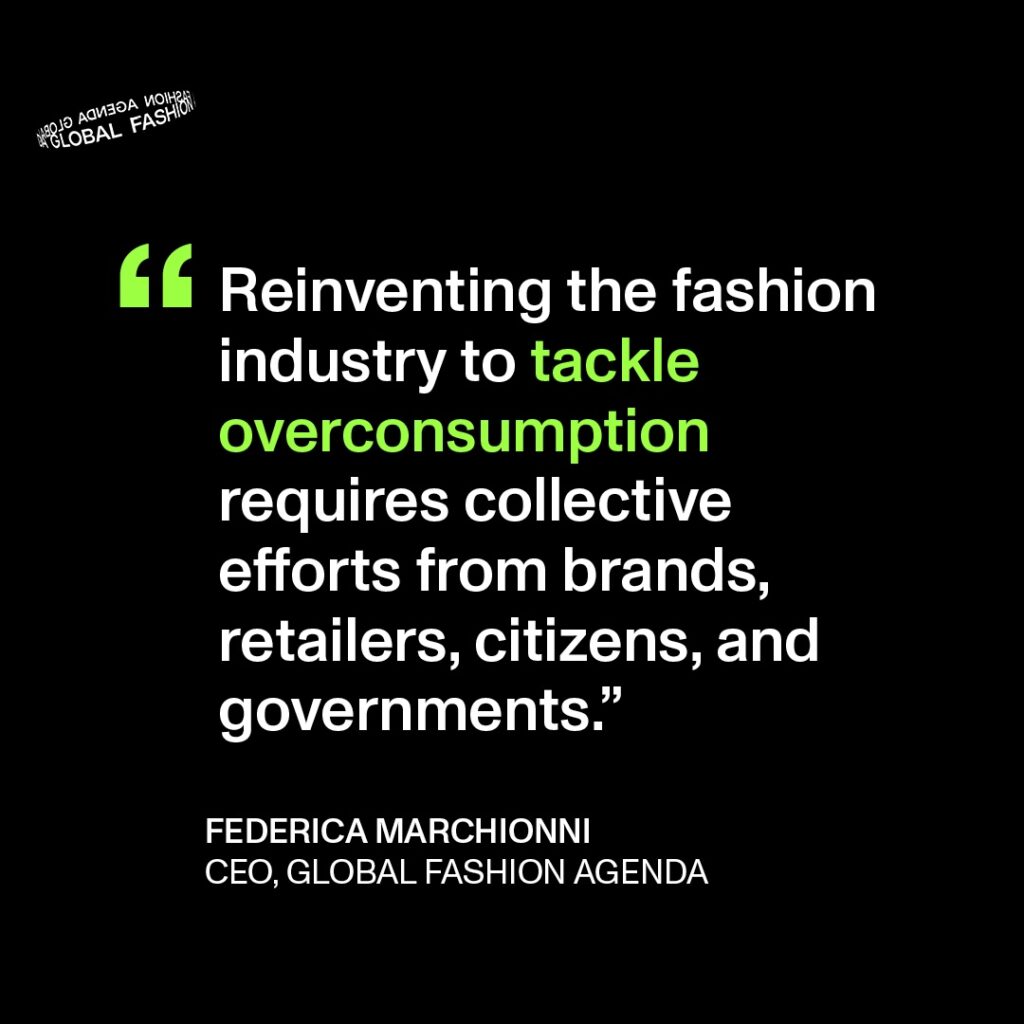Consumption – Where do responsibilities lie?


A zeitgeist of today’s industry, ‘sustainability’ is firmly entrenched in the sphere of fashion. However, talk of sustainable fashion is not reserved for brand executives and leaders, but rather, the industry is faced with a generation of citizens with all-encompassing sustainability agendas well-established in their arsenals.
Addressing sustainability requires us to closely examine a whole range of topics including emissions, production, social justice, waste, pollution, and biodiversity – all of which are inextricably linked. Reinventing the fashion industry to tackle this complex matrix of considerations will require collective efforts from brands, retailers, citizens, and governments.
The notion of the ‘conscious consumer’ is commonplace these days, but does the term ‘consumer’ require a total rethink? Reducing people to their consumption habits not only places the onus on the accumulation of more, but also limits us to thinking in extractive ways. People and their needs have come to be commercialised – cultivating an unquenchable desire for more.
It is often posed that we should instead reclaim our identities beyond the grasps of relentless marketing and think of people as ‘global citizens’ – agents who can explore their impact in several ways beyond simply consuming, even if it is ‘consciously’.
Businesses are based upon consumer demand, and regulations often change according to public outcry. Shifts towards more sustainable business models are no coincidence, but rather happen as a response to an ever-increasing demand for better practice.
This, however, begs the age-old question around the balance of responsibility between citizens, policymakers, and corporations as the antidote to the climate crisis. The answer lies somewhere in between. If citizens continue to pursue endless consumption at such rapid rates, brands benefitting from this system are less likely to radically reinvent businesses – Drapers recently reported that 39% of people shop for fashion at least once a month, with 19% purchasing something every two weeks.1 Staggering figures such as this indicate that some disruption must come from citizens rethinking their shopping habits, otherwise we can’t expect brands to change.
So, whilst a huge proportion of responsibility resides within organisations to carry out business more ethically, responsibly, and transparently, citizens have the opportunity to demand more from organisations because they simply have to listen. If citizens have the privilege to do so, they can be very powerful with their consumption. The exchange that takes place when someone buy a garment, positions them in an often-global supply chain.
Drapers latest report indicated that shoppers want to do the right thing but are often confused when shopping – thus, there appears to be a gap between what consumers want to do versus what they end up doing. Earlier this year Zalando released its, ‘It Takes Two’ report – exploring the attitude-behaviour gap across 12 dimensions of sustainable purchasing decisions, emphasising just how critical efforts are from every party to bridge this gap.2
Whilst an overall decrease in consumption is a powerful way to disrupt the industry, when people do try to shop more sustainably, they are stifled by the lack of transparency and the rampant rise of ‘greenwashing’ in the industry. Citizens can’t establish the true cost of garments without credible information about supply chains.
Buzzwords aplenty, it’s difficult to find a brand without some sort of ‘eco’, ‘sustainable’ or ‘green’ collection, and yet with no regulation on these terms, Drapers found that 69% of people do not always trust brands and retailers when they say they are sustainable,1 so even in terms of marketing – greenwashing simply isn’t working. A two-pronged approach is needed here – encompassing better regulation on sustainability labelling and greenwashing avoidance from brands.
Read more about the role of policy in driving the agenda on transparency HERE.
Individuals are questioning systems and demanding change; accordingly, they should be provided with the credible information they need to begin to navigate the complex world of sustainability.
Read more about how Global Fashion Agenda is working with the industry to navigate these complex issues HERE.
REFERENCES
1. Drapers (2021). Sustainability and the Consumer 2021.
2. Zalando (2021). It Takes Two.